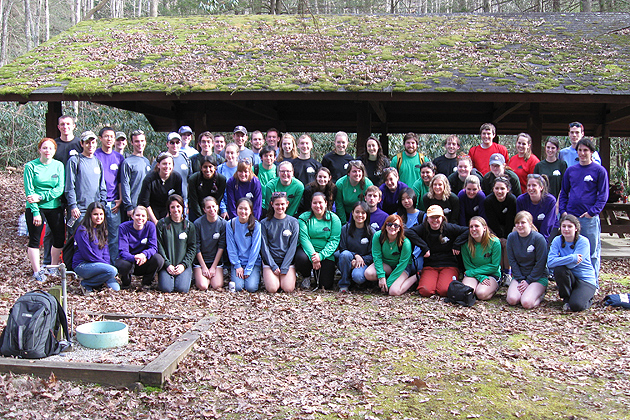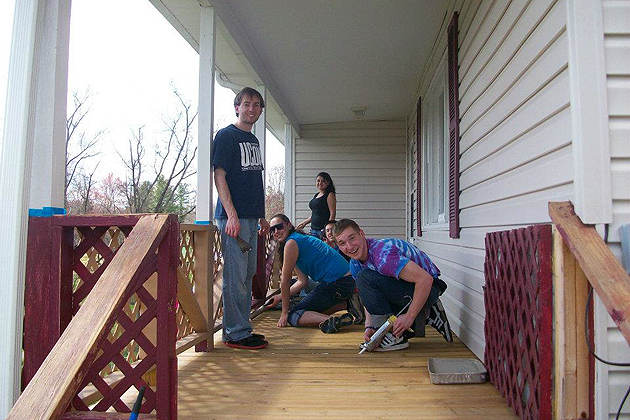
For the past five years, the student leadership board for UConn’s Honors Program has put its commitment to service into action, and organized alternative spring break trips. Initially inspired by the tragedy of Hurricane Katrina, groups of students and staff have volunteered in Mississippi, Louisiana, and Florida.
This year, the group decided to lend a hand in a different region of America. “When you think of poverty, people think of exotic places,” says Laura Hatchman ’13, director of HASB 2012. “But there is poverty everywhere.” One of these “overlooked communities” is Dungannon, Va., a small town in Appalachia with a population of just over 300.
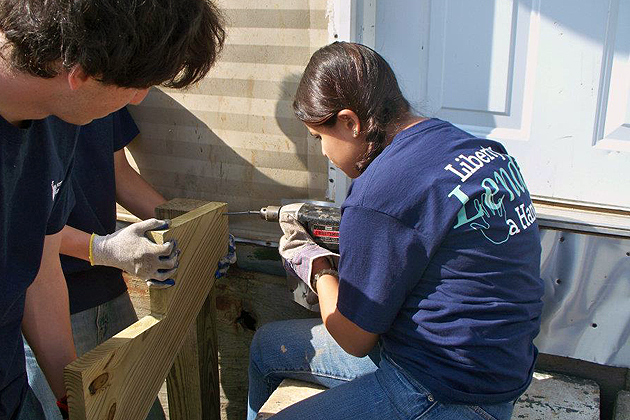
The location for the annual trip is selected by the HASB organizers, a group that is solely student-based. “Students own the process from start to finish,” says Lynne Goodstein, director of the Honors Program. The student leaders spent last summer researching destinations and ultimately selected Dungannon.
Appalachia didn’t have the media spotlight given to the Gulf. Says Hatchman, “Places you’ve never heard of will change you the most.”
The HASB 2012 leaders planned every detail of the trip. Partnering with the Dungannon Development Commission, they worked directly with an organization called Project HELP. “They provided us with worksites, food, and housing for the entire week,” said John Peters ’13, assistant director for HASB 2012. The HASB leadership also secured funding for the trip from UConn’s Undergraduate Student Government, and grants through the Human Rights Institute and Liberty Mutual’s Responsible Scholars program.
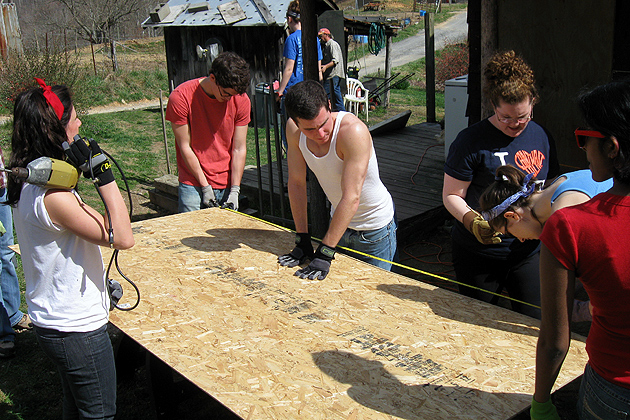
With only about 300 residents in the remote town, “[our group] descending upon [the community] was quite noticeable,” said Rebecca Gates, program coordinator for the Honors Program. She served as the trip’s staff advisor, assisted with administrative support, accompanied the students, and most importantly, shuttled them by car to the most isolated worksites. Many of Dungannon’s roads are unpaved and some are steep, said Gates, which proved a challenge for the coach bus.
Once in Dungannon, the group offered support in various ways, from sorting items at Project HELP’s thrift stores to fixing homes for residents. “I grew up around power tools,” said Rebecca D’Angelo ’14, “so I have a vague idea of how they work. But I’ve never planned out a project, never created a plan of attack, or put siding up on a house. We were given materials and had to figure out how to conserve those materials to the best of our abilities, in the short amount of time that we had.”
Leading up to the trip, the team leaders offered background knowledge to prepare the students for the experience, said Hatchman. That included addressing issues such as poverty and stereotypes.
“I had personally never traveled to this area before,” said Peters. “One lesson that I have learned from every alternative spring break trip that I have been on is to go in without any expectations.”
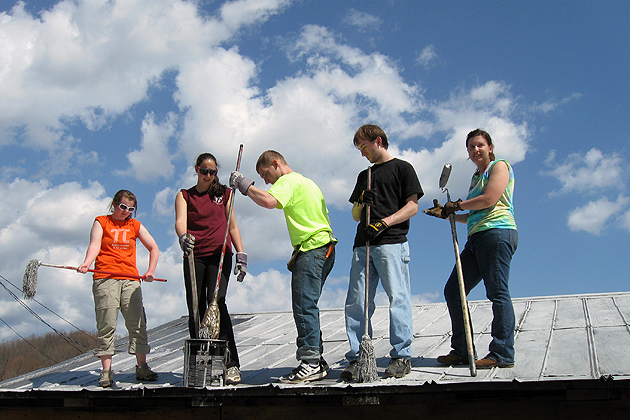
Yet the group still encountered life stories that left them humbled. One family’s home “was literally falling down,” said Hatchman. “You could put your hand through the wall. I talked to the woman who owned it and she told me during the winter, they were trapped [at the top of the mountain] and burned their own possessions [to heat snow] for water.”
But the community is not without hope. Someone who “tied the group together” said Hatchman, was a little puppy named Skippy. He lives in the house next to Project HELP, and according to Gates, “pretty much runs Dungannon. He was very protective, but very loving.” Skippy is owned by a woman named Barbara, a gift from her husband shortly before he died of cancer a year ago.
In front of the students, the small Chihuahua mix was attacked by a large dog. Though Skippy was stunned, he recovered and even bid the bus farewell as it left for Connecticut. “That little dog encompassed a lot of the spirit of [Dungannon],” said Gates. “He does what he can with what he’s got, and stays so positive and so proud, even though he gets knocked around.”
